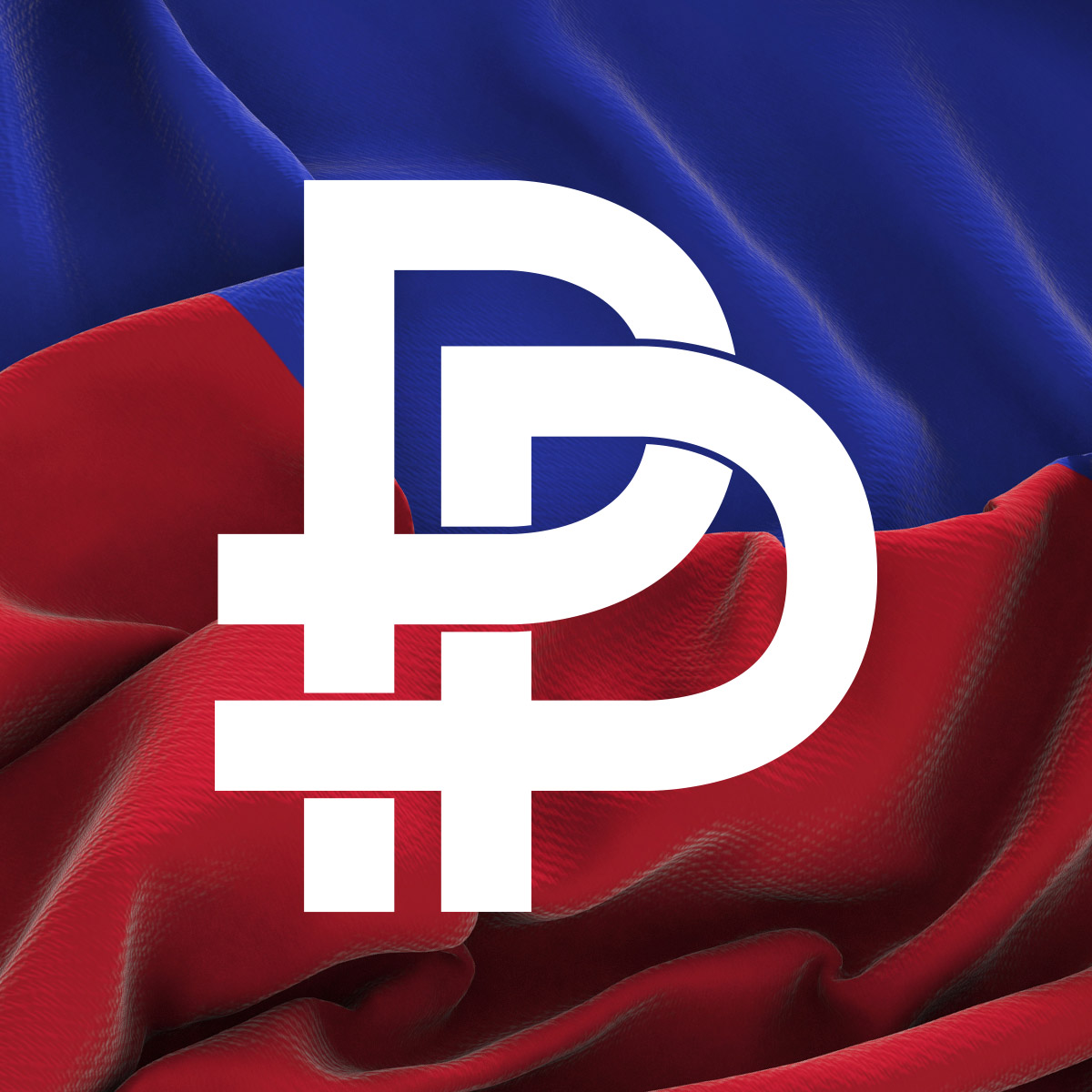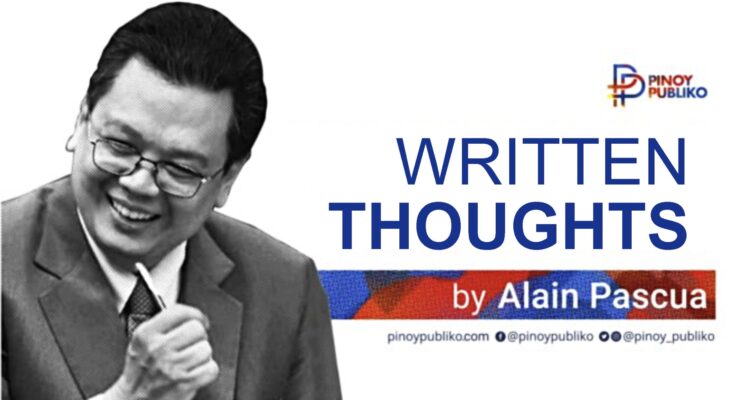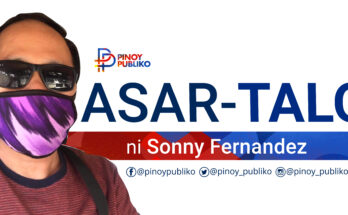THE recently signed Executive Order No. 23 or “Reinforcing and Protecting the Freedom of Association and Right to Organize of Workers, Constituting an Inter-Agency Committee to Strengthen Coordination and Expedite the Investigation, Prosecution and Resolution of Cases for Violations thereof, among others,” has been criticized by anti-communist groups.
In their views, the EO contains dangerous and double-edged provisions that can be easily exploited by communist front organizations to strengthen and conceal their underground activities in the labor sector.
They are talking about the inclusion of the terms “red-tagging” and “extrajudicial killings” in the recently issued executive order.
“WHEREAS, various groups have raised concerns on the country’s implementation of ILO Convention No. 87, given reported incidents of acts of violence, extrajudicial killings, harassment, suppression of trade union rights, and red-tagging allegedly perpetrated by the State agents targeting, in particular, certain trade unions and workers’ organizations.(Emphasis mine. ILO Convention No. 87 is Freedom of Association and Protection of the Right to Organizepromulgated by the International Labor Organization and ratified by the Philippines on December 29, 1954.)
Extrajudicial killings refer to the killing of a person or persons by the government or its agents, or by private or non-governmental individuals or groups, without trial. These killings are usually directed against persons considered enemies of the state or enemies of the revolution. The term “extrajudicial” means that the killing occurs outside the bounds of the law and is therefore considered unlawful and a violation of human rights. Every democratic state, organization and individual will neither condone nor allow extrajudicial killings.
On the other hand, “red-tagging” refers to the classification of individuals or groups as communists or terrorists without sufficient evidence or due process. This is a controversial practice used by some governments, military organizations, or other groups to discredit and harass their perceived opponents. Red-tagging can lead to human rights violations, discrimination, and harassment against individuals or groups who are red-tagged based on the belief that they are actually terrorists or communists. The term is biased against the communists who are often called reds, but similar labeling also comes from the left. They also label their opponents as “yellows,” as in “dilawangunyon,” as “puppets,” as in “tuta ng gobyerno at militar,” or as “fakes,” as in “huwad na lider.” Are these labels as dangerous as the red labels? Indeed they are, because the underground communist movement would also impose punishments, including the death penalty, on those labeled as such and as enemies of the revolution. Everyone makes a politically or ideologically motivated label, usually in the form of a false label of enemy.
The term “red-tagging” is believed by some to be an invention of the Philippine communist movement, which has used it since the 1980s at the height of its insurgency, but actually it was used as early as the 1950s in the United States. It was used to describe the practice of labeling individuals or groups perceived as leftist or communist sympathizers as “Reds” or “communists,” which often led to persecution, harassment, or even violence against them. The practice of “red tagging” has since spread to other countries and contexts. It should be noted that the same communist movement in the Philippines prided itself as “Pulang Mandirigma” or red warriors. Was the government’s recent use of the made-up word in an official decree already proof of the accusations that the left is making against the state? Well that is debatable. However, the facts are verifiable if the state actually used this practice at any given time from the 1980s to the present. The use of the term in the official enactment of this administration may mean that it will not tolerate such labeling. While that remains to be seen, the written enactment is a beginning . The use of words, whoever concocted or invented them, does not make one their slave, but once such words are officially used or interpreted to explain an official policy, then that word has been freed from the confines of whoever invented it. And when freed it can be reinterpreted, it has been liberated. Nevertheless, the term “false tagging” or “false labeling” might have been more appropriate and correct.
However, the practice of “red-tagging” becomes acceptable and even legal when there is sufficient evidence and due process. For example, have the organs of the communist movement in the Philippines been classified as terrorists by a competent court or by decree?
Yes, the Communist Party of the Philippines (CPP), its armed wing, the New People’s Army (NPA), and its political wing, the National Democratic Front (NDF), have been declared terrorist organizations by the government of the Philippines. The declaration was made in 2017 by President Rodrigo Duterte through Proclamation No. 374, which designated the CPP-NPA as a terrorist organization under Republic Act No. 10168 or the Terrorism Financing Prevention and Suppression Act of 2012. The declaration was also reaffirmed by the Anti-Terrorism Council in 2020 under the newly enacted Anti-Terrorism Act of 2020. The European Union (EU) designated CPP-NPA as a terrorist organization through Council Decision 2011/70/CFSP of January 31, 2011. In addition, through Security Council Resolutions 1379 (2002), 1882 (2009), 1998 (2011), and 2225 (2015), the UN declared the CPP-NPA terrorist group responsible for the commission of serious violations involving children in armed conflict. Australia designated CPP-NPA on October 28, 2002, and re-listed it on November 13, 2013; the United Kingdom designated CPP-NPA on August 14, 2002, and reaffirmed that designation on July 7, 2020; and New Zealand designated CPP-NPA on October 11, 2020, and renewed that designation on September 26, 2019. Of course, the communist movement and the left would challenge the validity of these declarations, but the government’s and other governments’ declarations stand.
What about leftist organizations like BAYAN, KMU, ACT, LFS, Anakbayan, Gabriela, Migrante, etc., have they been declared terrorist or communist organizations? No, legal leftist organizations like the ones mentioned are not classified as terrorist organizations in the Philippines. These organizations advocate for various causes and have been recognized as legal entities by the Philippine government. Some of them have been elected by the people to represent them in Congress. However, some government officials and agencies have accused these organizations of having ties to or supporting the CPP-NPA-NDF, which is classified as a terrorist group. These accusations have been denied by the organizations themselves, although it has been noted that they have made no statements or condemnations of the violent and terrorist actions of CPP-NPA-NDF. This inaction is what makes them vulnerable to accusations of being sympathizers or fronts.
The anti-communist groups are concerned about the said premise mentioning red-tagging as the EO, in their opinion, will promote the communist terrorist agenda in its radical extremist and terrorist-oriented labor and trade union infiltration operations, especially with its “deceptive double tactics of double modus operandi using its front organizations,” including its modus operandi of using and circumventing the legal system to camouflage its underground communist terrorist operations in the urban areas, which include the labor sector.
But no matter how noble and laudable their claim may be, imposing red tags or false labels without sufficient evidence or due process is a bad practice, and no democratic government, organization or individual will resort to or tolerate such methods. As long as these legal leftist organizations are not classified as illegal or terrorist, we must respect them, even if they are leftist, even if they do not condemn or express concerns about the armed struggle and violent revolution of the communist movement. And this is because they are legal, do not carry weapons, do not participate in the actual war of communist rebellion, and therefore the state and society must give them protection and legitimacy. How ironic. Yes, ironic indeed, but the state must provide protection to all those who want change, even radical and extreme change, as long as it is within the democratic space. But then again, the legal left’s non-condemnation of armed struggle and communist atrocities makes them a fair target of political or propaganda attacks.
Expose and disclosure reports with direct or indirect evidence from former cadres of the communist movement are not red-tagging or false labeling. These are “tell-all” or “whistle-blower” reports by people who once belonged to the underground but then decided to speak out against it, often revealing damaging information or secrets. The motivation for these individuals to speak out may vary, but it may be a desire to expose wrongdoing, seek justice, or simply ease their conscience.
EO No. 23, s.2023, and EO No. 70, s.2018, entitled “Institutionalizing the Whole-of-Nation Approach to Attaining Inclusive and Sustainable Peace, Creating a National Task Force to End Local Communist Armed Conflict (NTF-ELCAC), and Directing the Adoption of a National Peace Framework,” are two legal instruments that the government, its agencies, and the people can use to strengthen democracy and end armed conflict. It is noteworthy that the first decree was issued on the eve of Labor Day in 2023, while the second decree was signed on Human Rights Day in 2018.
It is now a question of the competence and abilities of ideological and political organizations and their cadres, both of the state and of the enemies who want to overthrow it, both anti-communist and leftist, how they can use these legal instruments to win the hearts and minds of the people. As for armed means, there is no question that they will be met, bullet for bullet, in the combat zones with the coercive instrument of the state – the military apparatus. As for the legal struggle, it is time to fight democratically and legally, to fight each other without red or yellow tags and extrajudicial killings. Do not call them Reds if they do not want that label, call them Natdems (National Democrats), they seem to love that label. Even in this struggle, the state and democratic forces must not lower themselves to the level of deceptive double tactics, because in the end deception and trickery can be easily exposed by the people themselves.
And we must remember that the elimination of discontent and rebellion is based on the elimination of inequalities, injustice, poverty and other causes of unrest, not through red or yellow labels, not through false labeling and certainly not through extrajudicial killing, but through the struggle for ideas, visions of the future, tactics and strategies, programs and projects, and movements and organizations against each other. Let the forces of left, center, or right compete against each other in student council elections, in labor unions and teacher union elections, in party-list elections, and in government position elections, and government and society are expected to respect the outcomes of these elections.
As Chairman Mao said, “Let a hundred flowers bloom. Let a thousand thoughts contend.” Oh, he also said, “Political power grows out of the barrel of a gun.” The first we agree with wholeheartedly, and the second we may agree with in principle, but its implementation against the existing state will entail coercive measures by the state. The people have the right to revolution, but the state also has the right to protect itself from that revolution.
***
(Alain Pascua is a former Education Undersecretary)





